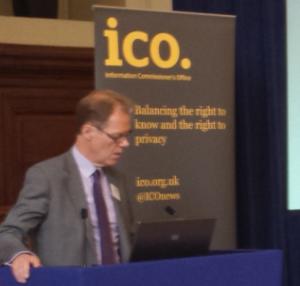Forgive me but I don’t hold the Department of Culture, Media and Sport (DCMS) in very high regard when it comes to technology issues. It’s a very personal thing, dating back to the Digital Economy Act, their blinkered approach and refusal to listen to anyone who wasn’t an ageing rock star (or paid by an ageing rock star).
Culture Secretary Maria Miller trumpeted something over the weekend that, according to the substantial press coverage at least, should reduce the current high volume of unwanted marketing and other nuisance calls.
I’m confident the plans announced will do very little to reduce the deluge I currently get.
Why? Because spammers have shown themselves time and time again to give not a toss about rules and regulations.
For example, I signed up to the Telephone Preference Service (TPS) years ago, and have recently re-added my numbers just in case. Little help it does.
To understand why one has to look at the economics. TPS is a for-profit money making service run by the Direct Marketing Association (DMA).
The DMA charge to query its database – around £2,200 per annum, plus VAT. So from the start there is a disincentive for Joe Bloggs Marketing Co Ltd to use it. Better subcontract the calling overseas, with a paper requirement to check TPS and full deniability if their agents get busted calling my housebound, blind and painfully immobile 98-year-old grandmother an hour after she goes to bed of an evening.
The Solution
Is painfully simple. Put a legal requirement on on Telephone Service Providers (TSPs) via the forthcoming legislative overhaul of the Communications Bill to provide, free of charge, effective call blocking tools.
You see, TSPs like BT, Virgin Media, Sky and the rest actually make money from nuisance calls through so-called termination charges. They get paid for putting the nuisance call through to you, so there is little real incentive for anyone in the industry to tackle the problem.
Subscribers like you and I can pay, around £5 per month (£60 per year) for the privilege of having nuisance calls blocked at the exchange – but I see that as blackmail; I pay enough already to rent a phone line. My service provider is making money from the misery of a nation by accepting termination charges from marketeers who hound me 12 hours a day.
Now, if every telephone service provider was obliged through their operator’s license to provide a free and effective nuisance call blocking service then it would be a different story.
Exchange-level blocking is far more powerful than the little black boxes one can buy to filter calls before they hit your handset.
For example, if the call originates in the UK, even if the caller withholds their number, the exchange still knows the ID of the originating caller.
BT therefore, if you pay them for the privilege, provide a blocking service that allows users to dial a special code immediately after a “number withheld” call to block further calls from that number, without affecting calls from your local doctor’s surgery, who happens to withhold their number when calling me.
By the way, what I said above about spammers ignoring rules and regulations, a rule prevents a marketing company calling you withholding their number. Yet this goes on day in, day out.
So a legal obligation on all telephone service providers to provide free blocking tools like the one I described from BT. We’ll all use it if it’s free, and marketeers will have to find a new way to inflict their pain.
After all the current Government, as per the DCMS, is a big fan of free blocking (switched on by default) when it comes to web pornography and the like.
But Miller and Co at the DCMS are probably too busy slapping themselves on the back for the positive press over the weekend to listen to my advice. After all, a DCMS minister openly ignored my advice after inviting me to give it face to face.
James Firth



